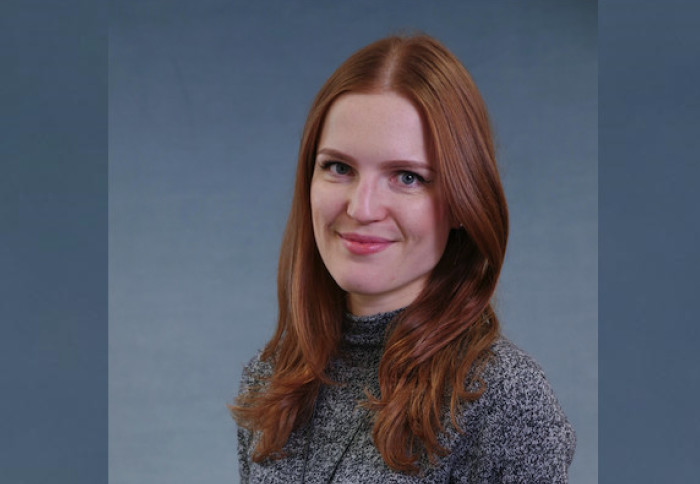Meet the eLearning Technologists digitising the education rule book - Part 1

Vaiva Adamonyte, eLearning Technologist
A team of eLearning Technologists from the Faculty of Medicine have been working tirelessly to support the digitisation of its Postgraduate courses.
"Modern technologies allow us to take our students to virtual labs, surgical theatres, and make learning more interactive, engaging, and more fun than ever." Vaiva Adamonyte eLearning Technologist
In response to the COVID-19 pandemic, significant aspects of the Faculty's education courses have been forced to digitise, creating a blended combination of on-campus (in-person) and remote (online) learning. Alongside this essential work, there has also been wider project in the Faculty to use digitisation to open our education offering to a broader audience in order to improve health training, share world-leading research and build capacity among a wider variety of communities.
In the first of a series of interviews, we spoke to Vaiva Adamonyte to find out how the Faculty's blended learning offering differs from previous years and discover her opinions on the benefits of digitised courses.
Who are you and what do you do?
I am Vaiva Adamonyte and I'm an eLearning Technologist at the Faculty of Medicine. I support a number of MSc programmes and help to develop, implement, maintain, support and co-ordinate the delivery of online and blended modules.
Where were you working before you joined Imperial? And how did you find joining the during the midst of a pandemic?
I am based in Liverpool and before I joined Imperial, I worked at the Liverpool Institute for Performing Arts. Although starting a new job in the middle of a pandemic may sound like a challenge, in reality, it wasn't that difficult since I was able to continue working from home. Once I joined Imperial, I was well supported from day one and have gotten to know my colleagues really well, even though we have never met in person. Best thing about it? I can work for Imperial College London without having to move to London!
What does an e-learning technologist do?
An eLearning Technologist supports the teaching staff in developing and running online and blended courses, and in using technology to enhance learning and teaching. The job can be pretty technical some days, but 'people skills' are also crucial.
Even prior to the pandemic, there was growth in remote learning, EdTech and digitisation of courses, why do you think that is and what are the benefits?

Ever since the invention of the printing press, technology has allowed us to connect with each other and learn new things via distance. The growth of distance learning has enabled people to teach, learn and disseminate research instantly and without borders. Modern technologies allow us to take our students to virtual labs, surgical theatres, and make learning more interactive, engaging, and more fun than ever. Technology also makes learning much more accessible too, which means even more people can benefit from it.
What challenges have you found specifically in relation to digitising medical courses and are there any exciting technological solutions you have used to overcome these?
The biggest challenge was how quickly things were happening. Academic teams have been working tirelessly on making their courses work via distance and everyone has been very busy, especially those who also have clinical roles. I have also worked to get my academic colleagues to find time to re-think their practices and to develop new approaches to teaching that would work better online. Using technology, we have been able to facilitate team-based learning (TBL) assessments online, which have only been delivered in the classroom in the past.
What advice would you give students navigating multimodal and fully digitised learning for the first time?
Come with an open mind, push yourself out of your comfort zone, engage with others as much as possible, and remember to have fun.
What continued benefits can remote learning give us as we, hopefully, move into a more normal 2021?

I really hope that we can continue to do at least part of learning and teaching remotely in the future. Didactic lectures and big lecture theatres will be a thing of the past and we'll all be working a lot more collaboratively and effectively when we are together.
What do you think the future of education looks like? And how will digitised remote learning fit into that?
The future of education is bright – I believe that quality learning will become available to anyone, anywhere and we have proven that it is possible with some thought, creativity, and preparation. I think short specialist courses, delivered fully online have a lot of potential and will continue to grow in popularity.
Article text (excluding photos or graphics) © Imperial College London.
Photos and graphics subject to third party copyright used with permission or © Imperial College London.
Reporter
Benjie Coleman
Department of Surgery & Cancer